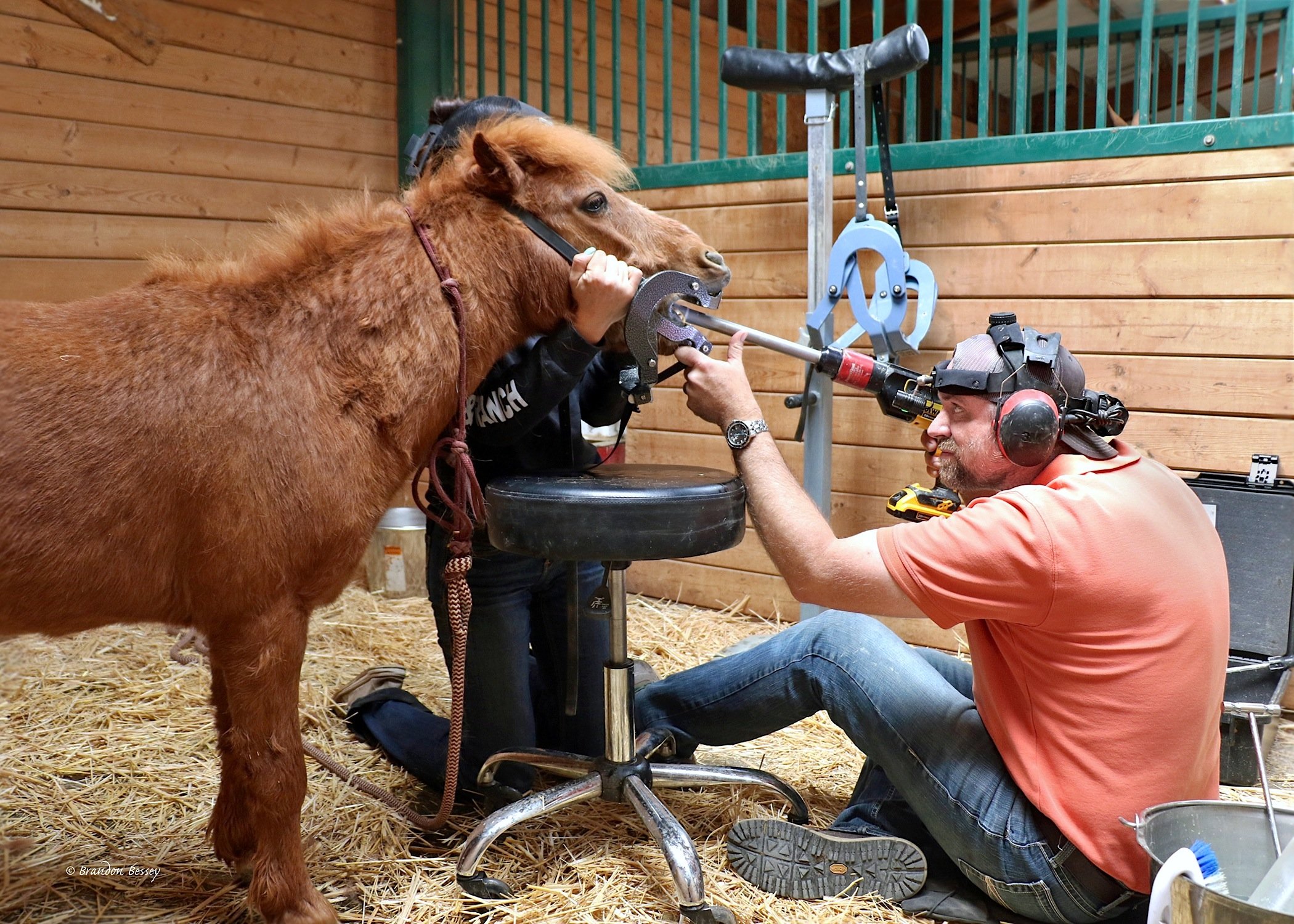
Incisor Extractions: Aftercare
Once your horse recovers from sedation (alert and head at or above midline), they can resume their normal feeding routine. This ensures they are fully awake and able to eat safely. It's important to monitor your horse closely during this time to ensure they are alert and able to swallow properly.
During the extraction, your horse was given an NSAID (Ketofen) to limit pain and swelling. NSAIDs are commonly used in veterinary medicine to manage pain and inflammation. Horses generally do well after this procedure and typically do not require additional pain medications. However, if your horse has difficulty chewing or seems to be in pain, please let us know so we can discuss pain management options to ensure their comfort. Pain management is crucial for your horse's recovery and overall well-being.
An antibiotic was prescribed to prevent infection. Antibiotics are essential in preventing bacterial infections that can occur after surgical procedures. If your horse experiences diarrhea while on this medication, please inform us, as it could be a side effect that needs attention. Diarrhea can lead to dehydration and other complications, so it's important to address this issue promptly.
We recommend a recheck 2-4 weeks after the extraction to monitor the healing progress. Additional rechecks may be recommended depending on how well the extraction site is healing. Regular follow-up appointments are important to ensure that the extraction site is healing properly and to address any potential issues that may arise.
